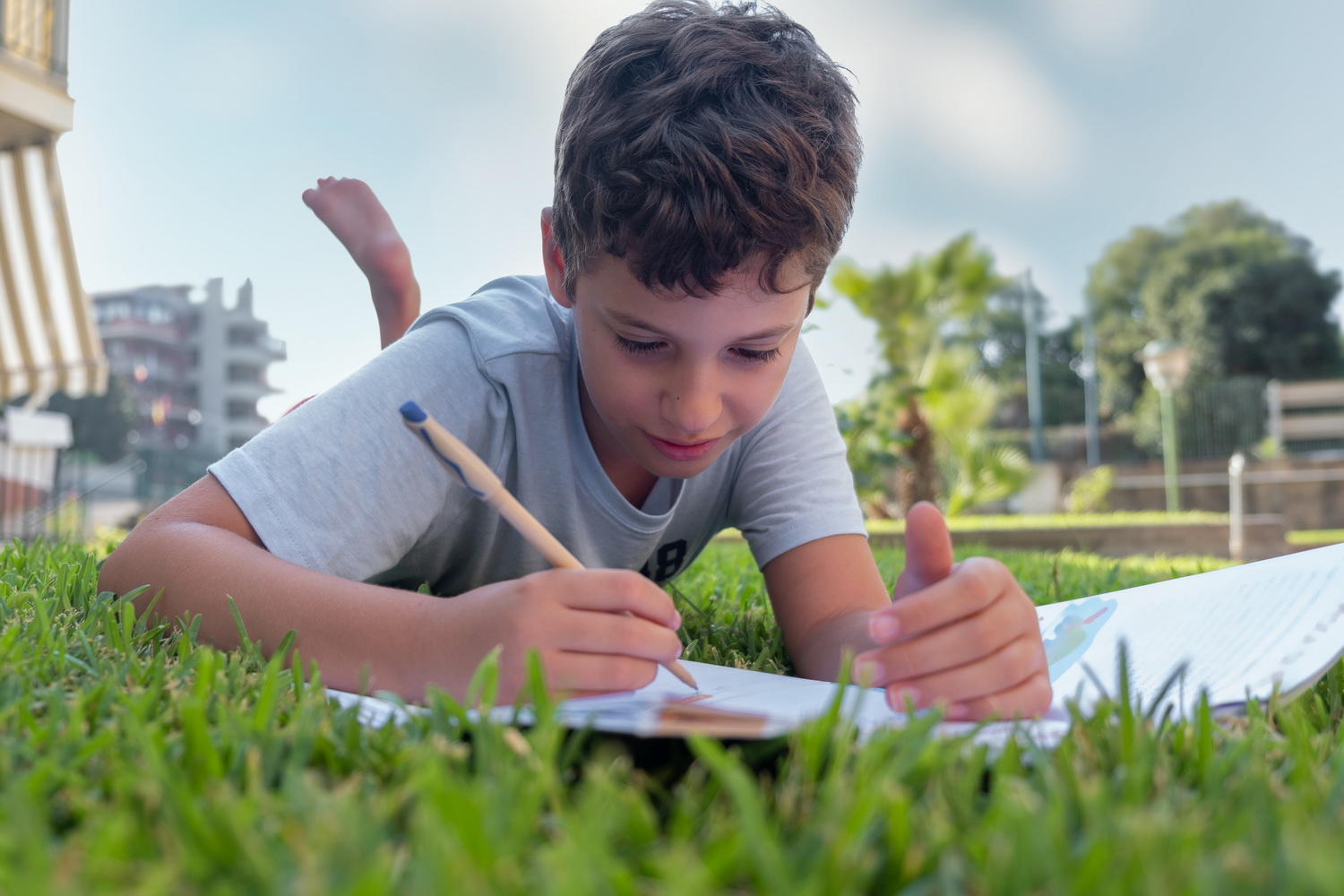Logical Reasoning Reading Fiction Worksheets for Ages 5-7
5 filtered results
-
From - To
Nurture young minds with our "Logical Reasoning Reading Fiction Worksheets for Ages 5-7." Specially designed to engage early readers, these worksheets blend captivating stories with thought-provoking questions. Boost children's reading comprehension and critical thinking skills as they delve into imaginative tales and unravel logical puzzles. Each worksheet encourages kids to make inferences, predictions, and connections, fostering a deeper understanding of narrative elements and enhancing cognitive development. Perfect for at-home learning or classroom use, our worksheets make learning logical reasoning skills fun and interactive. Discover a world where reading fiction becomes a pathway to smarter thinking and lifelong curiosity.
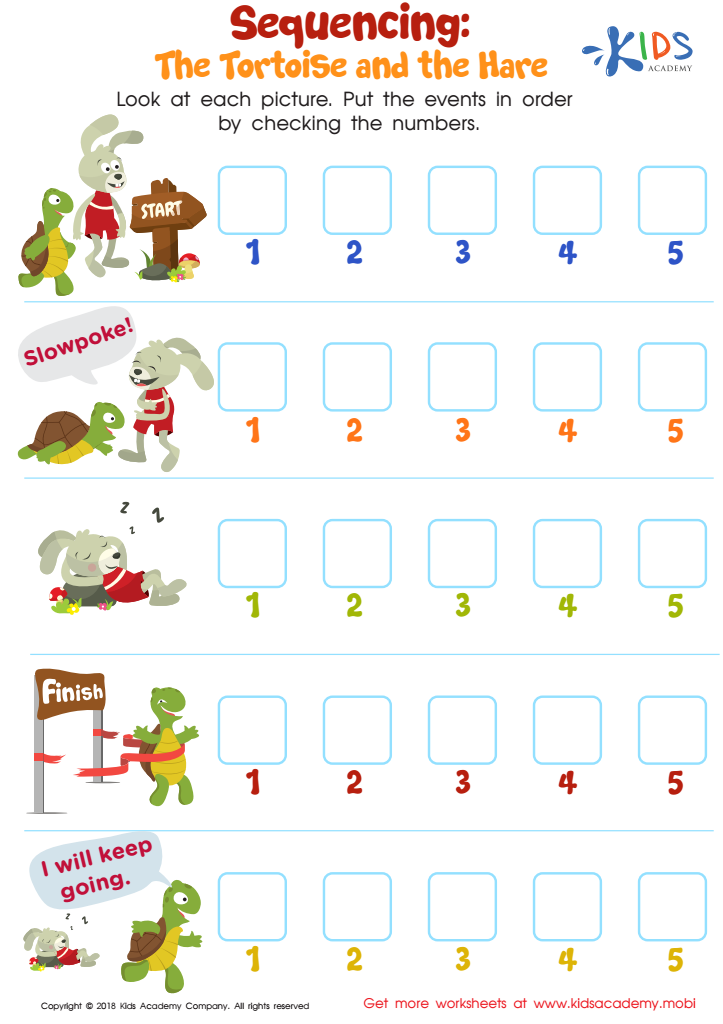

Sequencing: The Tortoise and the Hare Worksheet
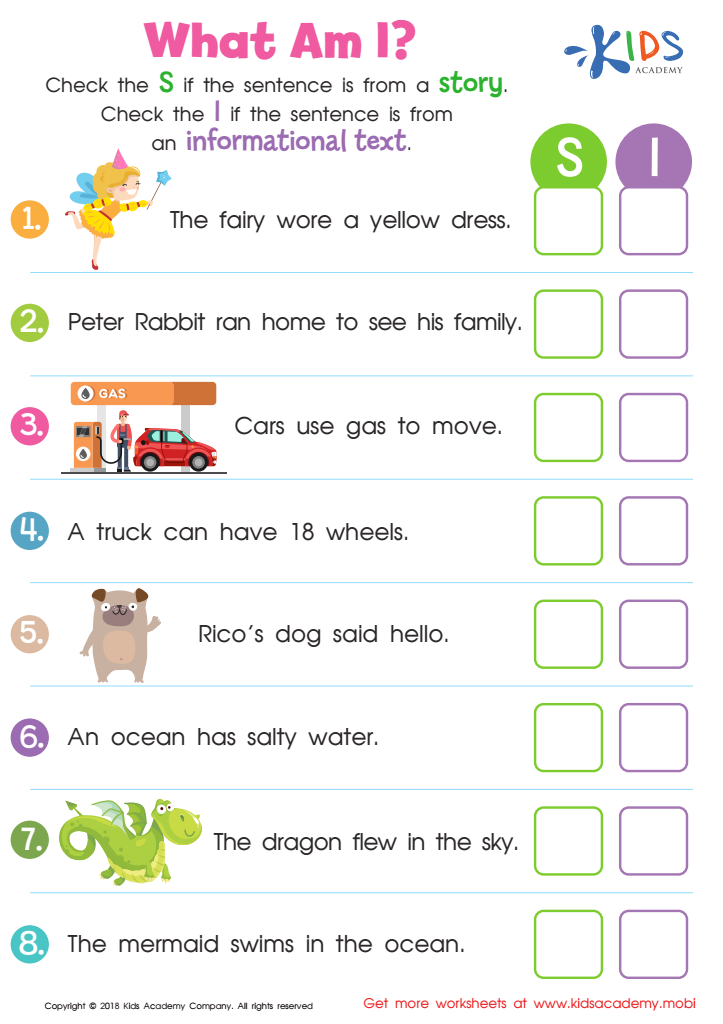

What Am I? Worksheet
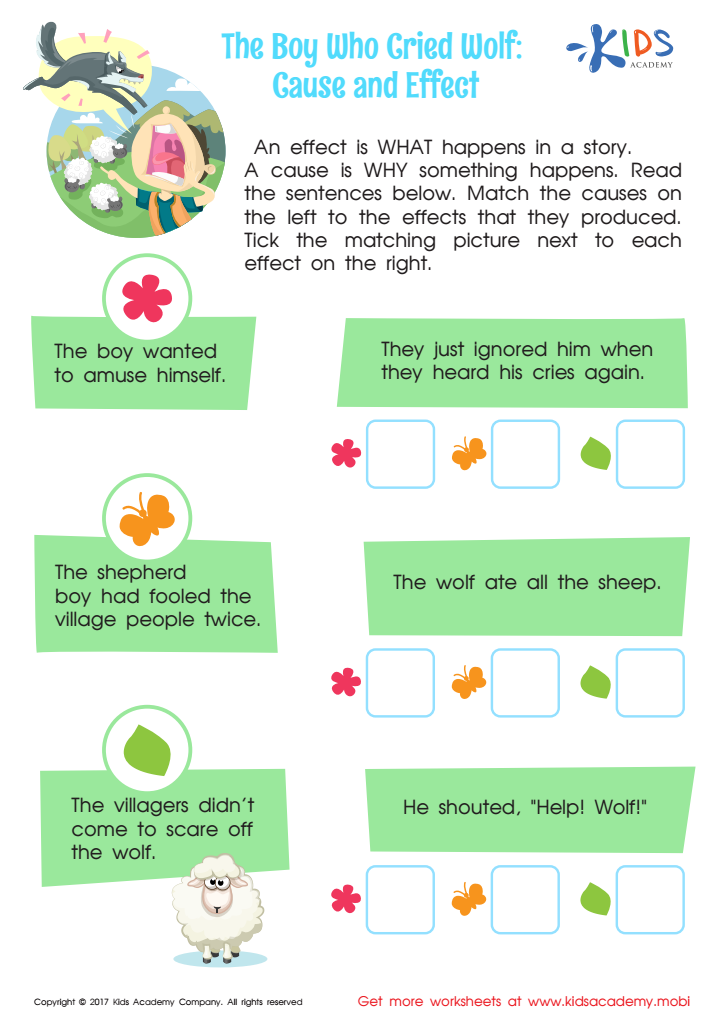

The Boy Who Cried Wolf: Cause and Effect Worksheet
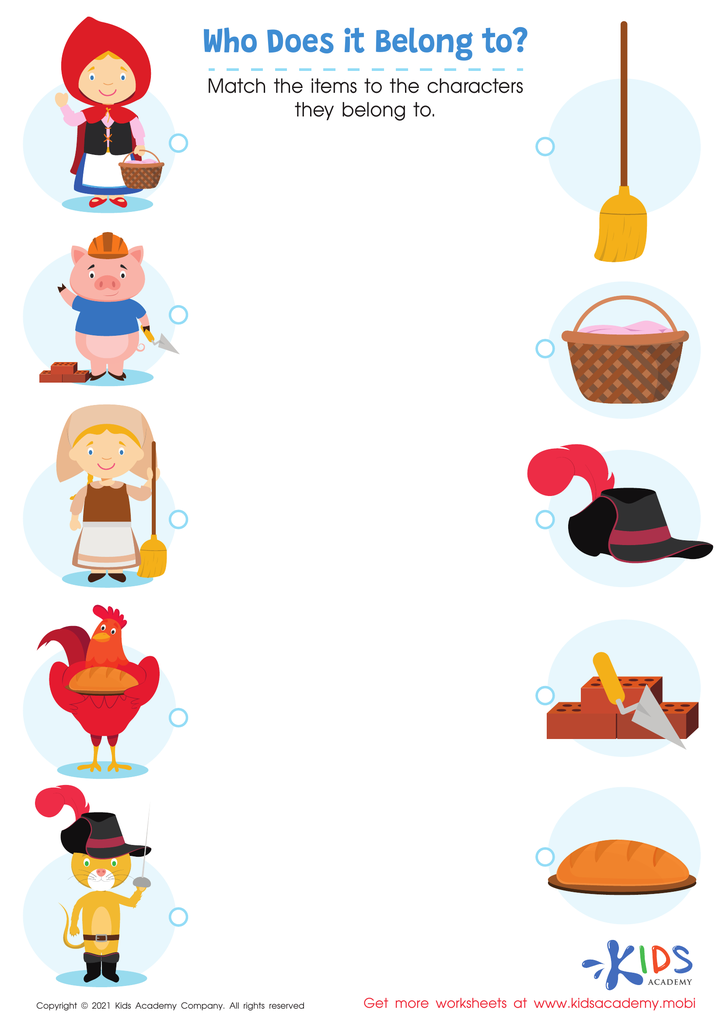

Who Does It Belong To? Worksheet
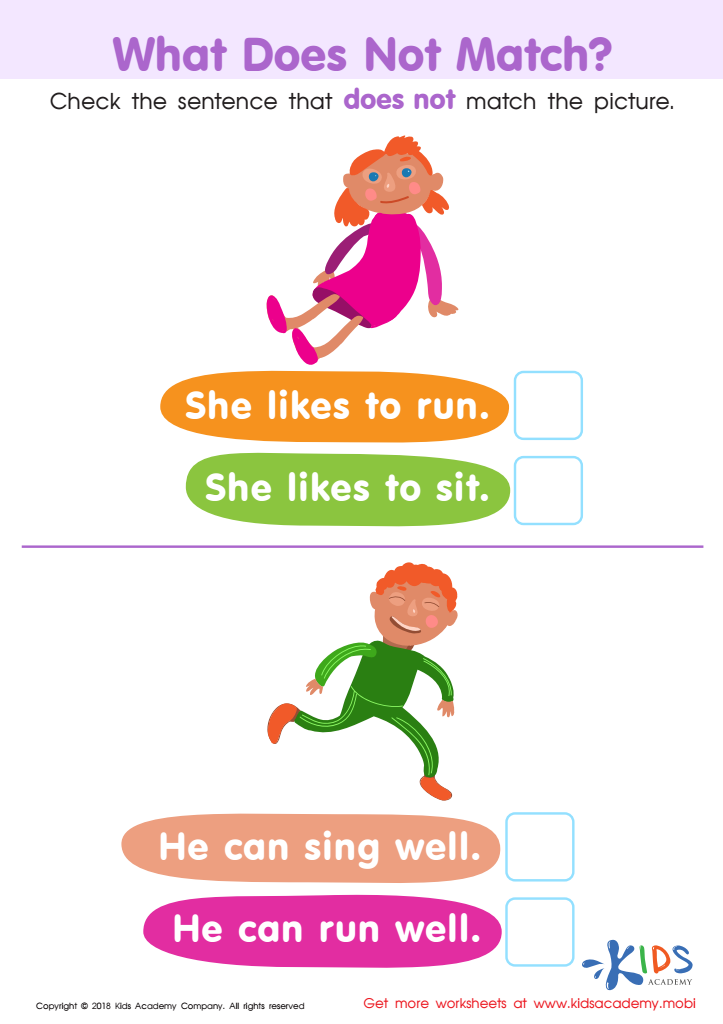

What Does Not Match? Worksheet
Parents and teachers should care about logical reasoning in reading fiction for children aged 5-7 because it lays the foundation for critical thinking and comprehension skills essential for lifelong learning. At this developmental stage, children are rapidly acquiring language and cognitive abilities. Engaging with fiction enhances their capacity to understand cause-and-effect relationships, sequences of events, and character motivations. These skills translate directly into logical reasoning, helping children make sense of the world around them.
When young learners read or listen to stories, they are prompted to predict outcomes, make inferences, and draw conclusions, improving their analytical skills. Logical reasoning through fiction also enhances problem-solving abilities; children learn to navigate different scenarios and face consequences, which is crucial for decision-making in everyday life.
Moreover, understanding logical sequences and connections in stories aids in developing narrative skills and comprehension, making future academic work in subjects like math, science, and literature more accessible. It also fosters creativity and empathy, as children consider different perspectives and possibilities.
By prioritizing logical reasoning within fiction, parents and teachers ensure children become adept thinkers who can approach complex problems critically and innovatively. This foundational skill set empowers children to achieve academic success and enhances their ability to interact meaningfully with the world.
 Assign to My Students
Assign to My Students






.jpg)

.jpg)
